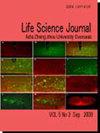抗议、群众运动和政治化的身份——当代印度社会冲突的再审视
引用次数: 0
摘要
近年来,印度目睹了无数问题的冲突激增,如与发展项目有关的流离失所、立法改革、对自然资源的要求、环境问题等。虽然每一种冲突情况都是独特的,需要对其本身进行详细的研究探索,但不能否认有必要根据潜在的共性和基本原则发展一种范式。这样一个框架不仅有利于研究人员,而且有利于政策制定者,并有可能为遏制和解决冲突创造途径。即使粗略地浏览一下地方、国家或国际层面上大多数冲突的潜在动力,也会发现对有限资源的争夺最终会转变为对权力和身份的争夺。许多这样的冲突往往似乎破坏了国家安全,并经常被解释为“反发展”、“反建制”甚至“反国家”。本文认为,重要的是揭示冲突情况下谈判的微妙过程,将冲突理解为一种共同建构的社会现实,并强调这种建构动态对相关各方身份的相互影响。除了研究身份动态在延续冲突中的作用外,本文还主张将身份和工具途径结合起来,将冲突理论化。强调身份政治化在冲突情境中所扮演的角色,本文提出了一个解构冲突并致力于解决冲突的理论模型。本文章由计算机程序翻译,如有差异,请以英文原文为准。
Protests Mass Movements and Politicised Identities A Relook at Social Conflicts in Contemporary India
In recent years India has been witnessing an upsurge of conflicts over myriad issues such as displacement related to development projects, legislative changes, claim over natural resources, environmental issues and the like. Though each conflict situation is unique and demands a detailed research exploration in its own right, the need for evolving a paradigm based on underlying commonalities and basic principles cannot be denied. Such a framework would facilitate not only the researchers, but also the policymakers, and has the potential to create pathways for conflict containment and resolution. Even a cursory perusal of the underlying dynamics of most conflicts at local, national or international levels indicates a contestation over limited resources that eventually transforms into contestations for power and identity. Many such conflicts often appear to undermine national security and are often construed as ‘anti-development’, ‘anti-establishment’ or even ‘anti-state’. The present paper posits that it is important to reveal the subtler processes of negotiation in a conflict situation, to understand conflict as a co-constructed social reality and to highlight the reciprocal impact made by the dynamics of such constructions on identities of the parties involved. Along with examining the role of identity dynamics in perpetuating conflicts, the paper argues for incorporating both identity and instrumental pathways in theorizing conflicts. Emphasising upon the role played by politicisation of identities in conflict situations, the paper proposes a theoretical model for deconstructing conflicts and working towards conflict resolution.
求助全文
通过发布文献求助,成功后即可免费获取论文全文。
去求助
来源期刊
自引率
0.00%
发文量
0
审稿时长
2-4 weeks
期刊介绍:
Life Science Journal, the Acta Zhengzhou University Oversea Version, is an international journal with the purpose to enhance our natural and scientific knowledge dissemination in the world under the free opinion/idea publishing principle. The journal is calling for papers from all the world. All the valuable papers or reports that are related to life sciences - in their broadest sense - are welcome. Other academic articles that are only certain relevant but are of high quality will also be considered and published. Papers submitted could be reviews, objective descriptions, research reports, opinions/debates, news, letters, and other types of writings. All submitted manuscripts will be sent for external peer review and processed the editorial work. After the peer review, the journal will make the best efforts to publish the accepted valuable articles as soon as possible. Let''s work together to disseminate our research results and our opinions/ideas.

 求助内容:
求助内容: 应助结果提醒方式:
应助结果提醒方式:


